Archive
04 December 2020
Professor Ronald Hanson appointed Distinguished Professor in Quantum Computing and Quantum Internet
Professor Ronald Hanson of the Faculty of Applied Sciences (AS) and the QuTech Institute has been appointed Distinguished Professor in Quantum Computing and Quantum Internet.
04 December 2020
In Memoriam: Prof.dr.ir. Herman van Bekkum (1932 – 2020)
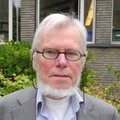
01 December 2020
Delft researchers develop blood oxygenation sensor for premature babies

Doctors have to keep a close eye on babies that are born prematurely, and brain oxygenation is perhaps the most important thing to monitor. Up to 50 percent of premature babies suffer brain damage, leading to neurological problems. Researchers at Delft University of Technology have now developed a wireless sensor that monitors the health of the baby's brain in a simple, inexpensive and comfortable way for the child.
01 December 2020
Researchers peer deep inside tissue
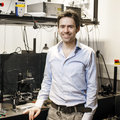
One of the challenges in optical imaging is imaging the inside of tissue in high resolution. Traditional methods allow us to look to a depth of approximately one millimetre. Researchers at Delft University of Technology have now developed a new method that can penetrate up to four times as deep: up to around four millimetres. The healthcare sector in particular may benefit from the new technique in the future.
28 November 2020
Graphene balloons to identify noble gases
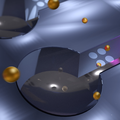
New research by scientists from Delft University of Technology and the University of Duisburg-Essen uses the motion of atomically thin graphene to identify noble gases. These gases are chemically passive and do not react with other materials, which makes it challenging to detect them. The findings are reported in the journal Nature Communications.
26 November 2020
From imaging to analysing: how Delmic’s new FAST-EM system is changing electron microscopy
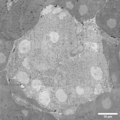
Delmic is launching an automated ultra-fast system, FAST-EM, which uses 64 electron beams. Reliable and extremely fast, FAST-EM is aimed at imaging biological samples without the need to constantly babysit the machine.
26 November 2020
Marie-Eve Aubin-Tam wins Waterman Award
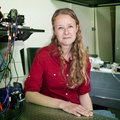
Researcher Marie-Eve Aubin-Tam of the Bionanoscience department has won this year's H.I. Waterman Sustainability Award. The head of the department of Bionanoscience, Marileen Dogterom, virtually presented the award to her during an online meeting on Thursday 26 November.
12 November 2020
Researchers create MRI-like technique for imaging magnetic waves
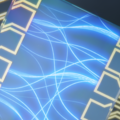
A team of researchers from Delft University of Technology (TU Delft), Leiden University, Tohoku University and the Max Planck Institute for the Structure and Dynamics of Matter has developed a new type of MRI scanner that can image waves in ultrathin magnets. Unlike electrical currents, these so-called ‘spin waves’ produce little heat, making them promising signal carriers for future green ICT applications.
09 November 2020
TU Delft formula brings green new battery closer to reality
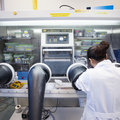
Researchers from the Chinese Academy of Sciences and Delft University of Technology (TU Delft) have developed a method to predict the atomic structure of sodium-ion batteries. Until now, this was impossible even with the best supercomputers. The findings can significantly speed up research into sodium-ion batteries. As a result, this type of battery can become a serious alternative to the popular Li-ion batteries found in our smartphones, laptops and electric cars. The researchers have published their findings in the prestigious scientific journal Science.
05 November 2020
Fourteen TU Delft researchers receive Veni grant
The Dutch Research Council (NWO) has awarded a Veni grant worth up to 250,000 euros to fourteen highly promising young TU Delft scientists.